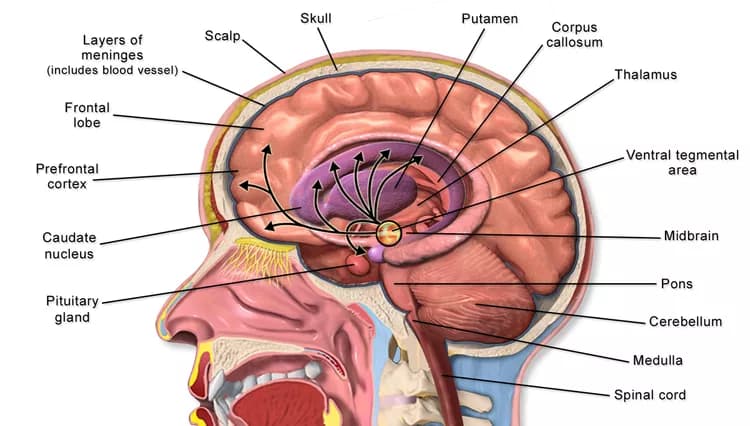
Learning During Development Is Regulated By An Unexpected Brain Region
Half a century of research on how the brain learns to integrate visual inputs from the two eyes has provided important insights in critical period regulation, leading to the conclusion that it occurs within the cortex. Scientists have now made the surprising discovery that a brain region that passes on input from the eyes to the cortex also plays a crucial role in opening the critical period of binocular vision.
During childhood, the brain goes through critical periods in which its learning ability for specific skills and functions is strongly increased. It is assumed that the beginning and ending of these critical periods are regulated in the cortex, the outermost layer of the brain. However, scientists from the Netherlands Institute for Neuroscience discovered that a structure deep in the brain also plays a crucial role in the regulation of these critical periods. These findings, published today in the leading journal Nature Neuroscience, have important implications for understanding developmental problems ranging from a lazy eye to intellectual disability.
Critical periods
We can only flawlessly learn skills and functions such as speaking a language or seeing in 3D through binocular vision during critical periods of development. When these developmental forms of learning fail, lifelong problems arise.
Scientists have been investigating the mechanisms by which critical periods are switched on and off in the hope to extend or reopen them for the treatment of developmental problems. Half a century of research on how the brain learns to integrate visual inputs from the two eyes has provided important insights in critical period regulation, leading to the conclusion that it occurs within the cortex. Neuroscientist Christiaan Levelt and his team now made the surprising discovery that a brain region that passes on input from the eyes to the cortex also plays a crucial role in opening the critical period of binocular vision.
Using electrophysiological recordings in genetically modified mice, they showed that this brain region, known as the thalamus, contains inhibitory neurons that regulate how efficiently the brain learns to integrate binocular inputs. Levelt: "To improve developmental problems resulting in learning problems during critical periods, reinstating flexibility in the visual cortex may not be sufficient. Scientists and clinicians should not limit themselves to studying cortical deficits alone. They should also focus on the thalamus and the way it preprocesses information before it enters the cortex."
Albinism
The study may also provide some hope for people with albinism, who often have limited binocular vision due to misrouting of inputs from the eyes to the thalamus. Levelt's team found that in contrast to what is generally assumed, plasticity of binocular vision also occurs in the thalamus itself, suggesting that this might be improved in children with albinism through training.
Materials provided by Netherlands Institute for Neuroscience - KNAW. Note: Content may be edited for style and length.
Disclaimer: DoveMed is not responsible for the accuracy of the adapted version of news releases posted to DoveMed by contributing universities and institutions.
References:
Jean-Pierre Sommeijer, Mehran Ahmadlou, M. Hadi Saiepour, Koen Seignette, Rogier Min, J. Alexander Heimel, Christiaan N. Levelt. (2017). Thalamic inhibition regulates critical-period plasticity in visual cortex and thalamus. Nature Neuroscience. DOI: 10.1038/s41593-017-0002-3
Related Articles
Test Your Knowledge
Asked by users
Related Centers
Related Specialties
Related Physicians
Related Procedures
Related Resources
Join DoveHubs
and connect with fellow professionals

0 Comments
Please log in to post a comment.